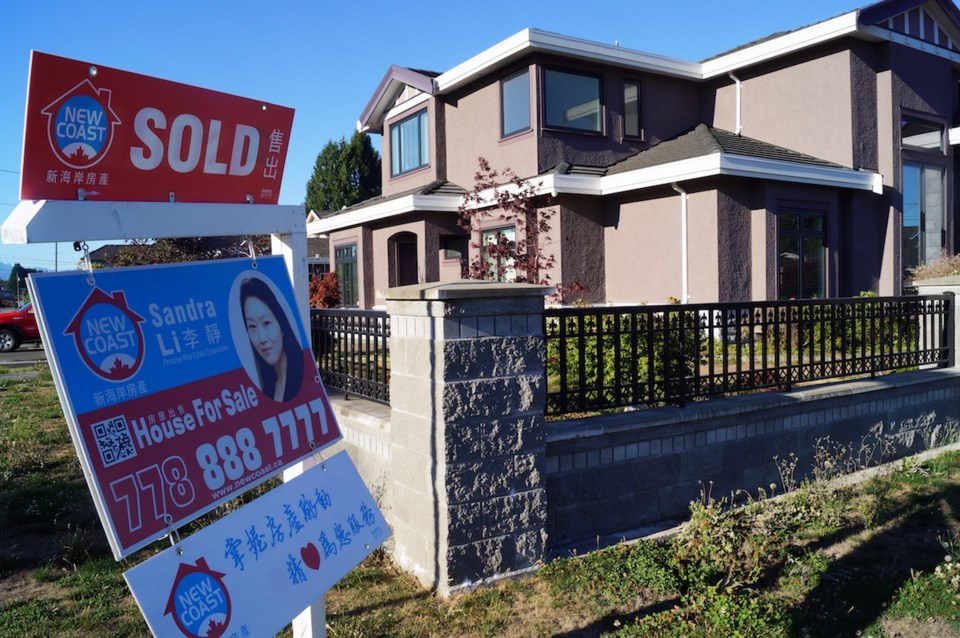The federal government has taken steps to buffer itself and prospective homeowners from a collapse in the real estate market, as well as to tighten up enforcement of capital gains tax exemptions.
The measures, announced Monday, are targeted towards hot markets in Vancouver and Toronto fuelled by speculative foreign investors — the majority of which come from China, a country experiencing an immense outflow of capital — and over-leveraged first-time homebuyers.
In the Lower Mainland a new tax on foreign homebuyers introduced Aug. 1 appears to have slowed home sales, but prices remain stable, for now, according to the Greater Vancouver Real Estate Board.
Tom Davidoff, director of UBC Centre for Urban Economics and Real Estate, said the steps announced by federal Finance Minister Bill Morneau to apply higher “stress tests” on new mortgages will likely impact demand on the lower end of the market, as lower-income earners will qualify for smaller loans.
Meanwhile, new measures requiring residents to declare their disposition of primary residences (which are exempt from capital gains taxes) to the Canada Revenue Agency, could impact the higher end of the market, said Davidoff.
The new declaration requirement is important because, should a person declare a home a primary residence in order to avoid paying capital gains tax, they are effectively a resident for tax purposes and must then declare worldwide income (an existing law).
This may spook foreign speculators, said Davidoff.
“Generally, the government is telling foreign buyers they’ll look into transactions. I think that will affect foreign interest in the market,” said Davidoff.
“I think Canada’s reputation as a great place to not pay taxes is being chipped away by this announcement,” added Davidoff.
Morneau also reinforced his government’s commitment to ensure only one house may be declared a primary residence by one family, in one year. That measure is aimed to curb house flipping.
“The CRA will continue to work with provincial partners to seek ways to further improve information collected on real estate transactions,” noted a government statement.
Morneau also announced measures to further limit a first-time homebuyers’ ability to qualify for a large mortgage.
A more stringent “stress test” will now apply to all government-insured mortgages. All borrowers will qualify for a mortgage based on the Bank of Canada’s five-year fixed interest rate, as opposed to the lower contract mortgage rate buyers typically pay.
This will allow a buffer from higher rates in the future or income loss.
It also lessens risk to the government, which backs mortgages through the Canadian Mortgage and Housing Corporation (CMHC).
The government also said it will consult with banks to take on more lending risk.
On Tuesday the Real Estate Board of Greater Vancouver announced home sales this September were down 32 per cent in Richmond compared to last September, however sales prices effectively remained the same, compared to August.



